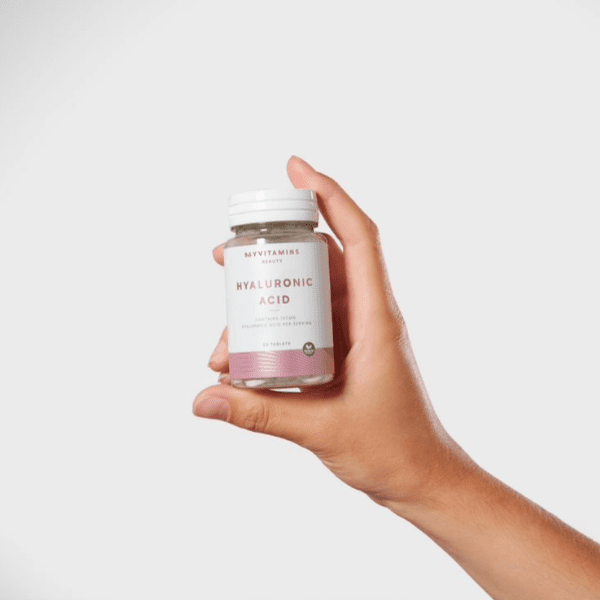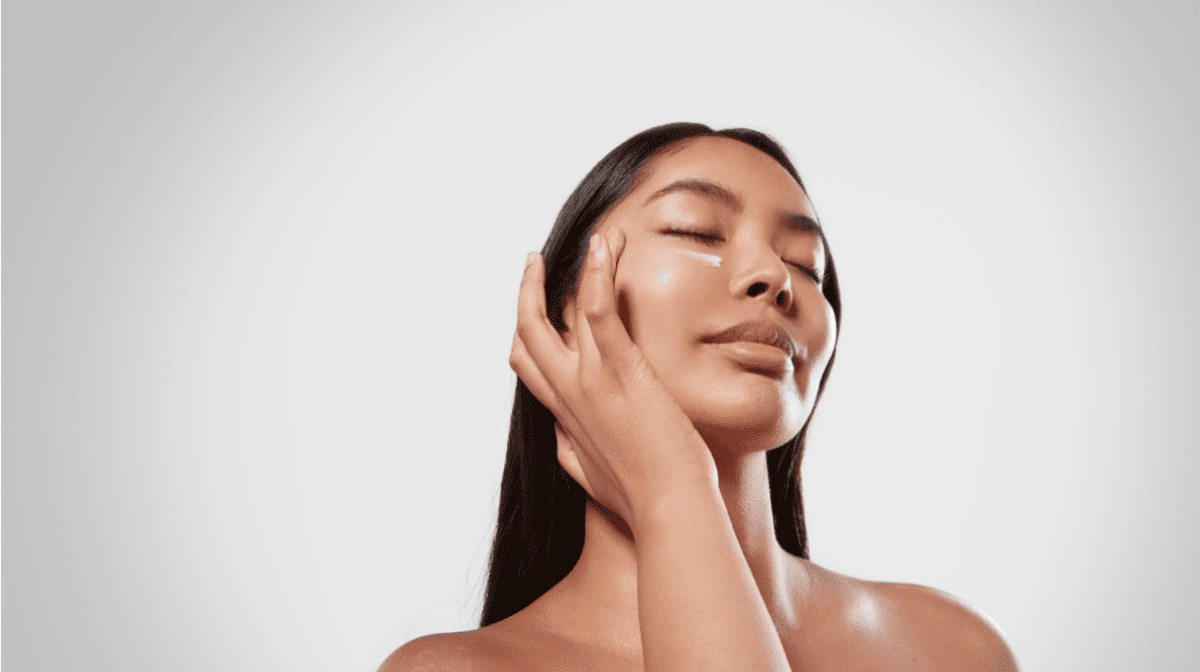Winter weather can wreak havoc with our complexion. From the harsh wind to the blasting central heating, our skin is constantly battling to retain moisture and stay healthy. To help your skin glow this Christmas, we’ve put together a 4-step routine, designed to tackle sensitivity, balance skin oils and boost collagen intake.

Winter Skincare Routine: How To Make Your Skin Glow
Step 1: Cleanse
Even during the colder months, it’s important to cleanse our skin to ensure it’s ready for topical products to get into deeper layers. We recommend a creamy, non-stripping cleanser as they have a more natural pH and will help keep skin balanced. This is extra important in winter when dry skin can cause irritation, particularly on our cheeks, exacerbating conditions such as rosacea.
After exfoliation, it’s important to stay away from really hot showers. The cold weather might leave you craving a hot bath, but this will strip the skin of natural oils and contribute to sensitivity.
Step 2: Exfoliate
Skin can become dull in winter with dry flakes preventing moisture from reaching our pores. One way to combat this is through exfoliation, either physical or chemical. For physical exfoliation we recommend jojoba beads or oats to ensure you are not exfoliating too harshly and irritating your skin. Alternatively, if you choose to use a chemical exfoliant, make sure to start with a gentle acid (such as lactic acid) to build up tolerance. And if you do, remember to use SPF daily.
After exfoliation, it’s important to stay away from really hot showers. The cold weather might leave you craving a hot bath, but this will strip the skin of natural oils and contribute to sensitivity.
Step 3: Feed Your Skin
Regardless of your daily routine, your diet has a huge part to play in the health of our hair, skin and nails. Cleansing and moisturising is best followed by some moisture-locking ingredients:
- Hyaluronic Acid
The heavyweight champion in this arena is hyaluronic acid. This molecule can hold 1000x it’s bodyweight in water. Our body naturally produces hyaluronic acid but our levels deplete over time which can lead to a dry, aged complexion. Supplements are a great way to boost levels from within.
- Collagen
Not only does collagen help retain moisture, but it also provides the skin with structure and plumpness. A recent study showed that supplementation of collagen peptides over four weeks resulted in ‘improved skin hydration, elasticity and reduced roughness’ on the skin. 1
